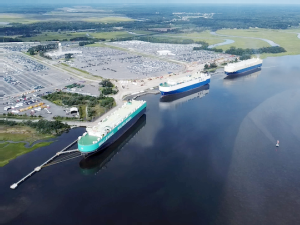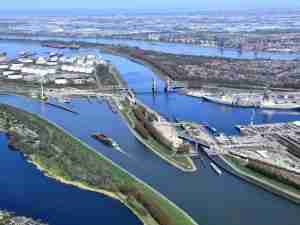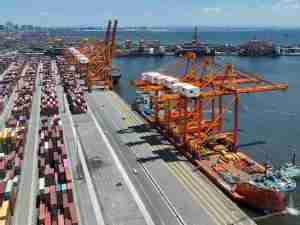The automated gate access system and fee collection system were scheduled to begin on Monday. With this delay, terminal operators will revert back to the temporary sticker system launched October 1 to determine which trucks to allow into port terminals.
"The Clean Trucks Program continues to function well, though starting the fee collection is essential to accelerate the environmental benefits of the program; so we hope to start fee collection soon," said Richard D. Steinke, Executive Director of the Port of Long Beach.
Beginning October 1, 2008, the ports took the unprecedented step of banning the most polluting trucks, the 1988 and older vehicles -- the initial ban in a series planned under the Clean Trucks Program. On January 1, 2010, the ports will ban 1993 and older trucks, and un-retrofitted model year 1994 to 2003 trucks. By January 2012, nearly the entire truck fleet serving the ports -- all vehicles 2006 and older will be banned.
The West Coast Marine Terminal Operator Agreement (WCMTOA) created the not-for-profit company PortCheck to collect the Clean Truck Fee to provide financial assistance for the replacement of as many as 10,000 trucks during the next three years.
Under the ports' program, the cargo owner (the party named on the bill of lading) is responsible for paying the Clean Truck Fee. The fee will be payable by credit card or electronic funds transfer, and must be paid before a container can enter or leave the terminals.
Cargo owners can visit the PortCheck page at www.pierpass-tmf.org for updates. (The PortCheck web site, www.portcheck.org, is under construction). Cargo owners that are already registered in PierPASS offpeak terminal access system will automatically be uploaded into PortCheck. Cargo owners that are automatically uploaded from PierPASS into PortCheck will first have to accept the terms and conditions of PortCheck before their account will be extended into PortCheck.










